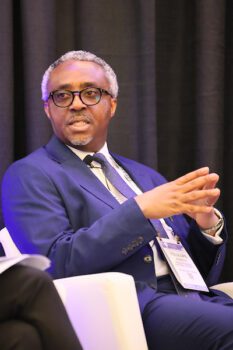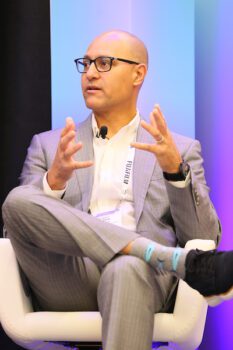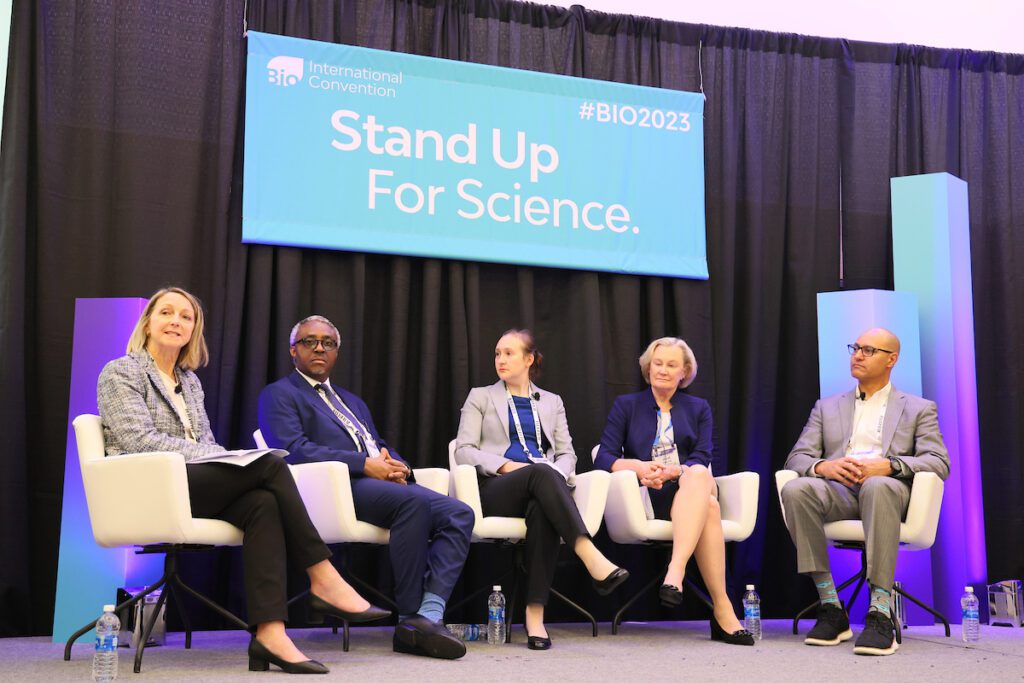Healthcare on the African continent is changing.
“At the current pace, the annual rate of cancer in Africa is projected to reach 1.4 million new cases and 1 million deaths by 2030, yet more than 20% of African countries lack modern cancer care,” Bio.News has reported.
Yet, despite those stark odds, nonprofit organizations like BIO Ventures for Global Health (BVGH), and the American Society of Clinical Oncology (ASCO), private industries like Takeda Pharmaceutical Company, and African and global governments have banded together to combat those odds, and give African healthcare facilities the tools they need.
“The African Access Initiative (AAI) has five core objectives to drive and deliver sustainable, demand-driven access to cancer medicines and technologies in Africa,” began Jennifer Dent, President of BIO Ventures for Global Health. She moderated a panel entitled, The Cancer Moonshot in Africa: Improving Cancer Patient Outcomes through Public-Private Partnerships, at the 2023 Biotechnology Innovation Organization (BIO) International Convention.
“To strengthen healthcare infrastructure, to build clinical oncology capacity, to strengthen clinical trial capabilities and fill the data gap in Africa through clinical trials, and to support patient awareness and education,” she continued.
And BVGH’s efforts have born real results, especially across sub-Saharan Africa.
“Since 2017, we’ve been working across our five core objectives, and we’ve delivered cancer medicines to treat more than 4,000 patients on the continent,” said Dent. “We’ve trained over 6,000 oncologist healthcare professionals in Africa, and we built laboratory and hospital infrastructure capacity. In 2018, we also spoke at the Biden Cancer Summit about our African Access Initiative—we were the only organization talking about cancer in Africa at that summit. And in December of last year, President Biden announced that he and the First Lady were extending the Cancer Moonshot to Africa.”
As the panel discussed their own history and goals to improve healthcare metrics in Africa the major consensus was that everything they were doing was patient-driven, and to be patient-driven, you have to listen to the community you are trying to help.
“A key to building sustainable approaches to improving care for patients has to start with partnerships and listening and getting to know the local communities,” said Dr. Chris Reddick, Vice President and Head of U.S. Health Equity at Takeda Pharmaceutical Company.
This approach has been especially effective in one country in particular: Nigeria.
Changing the face of oncology in Nigeria

Nigeria is poising itself to be a powerhouse for oncology in sub-Saharan Africa, which is an impressive turn considering early realities in the country when it came to cancer diagnoses.
“Typically, if you had a cancer diagnosis in Nigeria, a patient had to go to Ghana, India, or the U.S.,” said Dr. Tolulope Adewole, Chief Executive Officer at NSIA Healthcare Development and Investment Company (NHDIC). “It cost about $8,000 to get to Ghana or India to start treatment, but if you want to get full treatment, patients are looking at costs at about $60,000. To put that into perspective, minimum wage in Nigeria is about $80.”
“A cancer sentence was a death sentence for the majority of the people in Nigeria,” Dr. Adewole continued.
However, organizations like BVGH, ASCO, and Takeda—through their work with Nigerian stakeholders—have been able to bring state-of-the-art technology and equipment into Nigeria, train healthcare professionals in the areas that they have indicated are of the greatest need, keep promising young healthcare professionals in the country, and ultimately, help increase the rate at which patients come in for treatment—saving countless lives.
“That’s where our joy comes from,” said Adewole. “Seeing lives being transformed and changed today.”
Increasing connection

But there is still so much work to be done. It has been clear throughout every conversation about increasing healthcare access in Africa that there is need and energy, both within and without the continent.
“I think there’s a shift happening in the industry more broadly,” said Reddick. “If you think about companies working low- and middle-income countries on the continent of Africa, it’s much more of a transactional and social responsibility type of approach, which is a shift from just giving donations, writing checks, and offering goodwill. Now and you see companies setting up centers. Takeda now has a center for health equity and patient affairs, which I’m a part of, where we’re embedding units in countries and places where we want to actually have an impact. And what’s driving us a switch from just saying how much funding, to what’s the impact of our work?”
“We started calling groups that we knew were working on major healthcare projects in Africa,” recalled Dr. Julie Gralow, Chief Medical Officer and Executive Vice President at ASCO. “And there are lots of groups that are working on increasing access to cancer drugs around the world. Every time we talked with a group—for example, BVGH and the American Cancer Society, etc.—all these groups would say, ‘Oh, and you know about the work this group or that group is doing.’ By the time we got up to 20 groups, we realized, none of these people are talking to each other.”
“Last year in June, we held a summit on access to essential cancer systems at our ASCO annual meeting with a variety of stakeholders from across the board. Then, we followed up in Geneva at the World Cancer Congress, and we just had a third event where we asked stakeholders where we can best help with in the capacity building piece, the defining quality care piece, and the monitoring and evaluation piece,” continued Dr. Gralow.
Indeed, panels and events such as these are starting to make an impact, the fruits of which will become clear in the coming months and years. Ultimately, as long as the goal remains clear that path forward can be more easily followed.
And when it comes to patient access, the goal is clear. As Adewole concluded, “The life of every citizen is of equal importan”e.”




